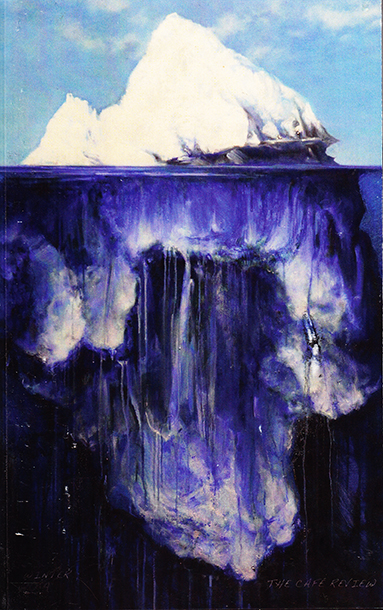James Wright’s Horses

by W. E. Butts
There are certain words
that transport us out of those small spaces
we sometimes live in:
prognosis, cancer, treatment, memory loss.
For instance, leaving the clinic this warm afternoon,
I can’t forget James Wright in that pasture
of beautiful horses:
Suddenly I realize
That if I stepped out of my body I would break
Into blossom.
There are certain words
that will transport us
to that other, flowering self.
Learning Williams

W. E. Butts
Learning Williams
for Kevin Cahill
What did I really learn that quiet afternoon
in a classroom of students, heads on their desks,
or turned absently toward autumn light slanting
through the window blinds? Perhaps the idea
of chickens clucking after a quick rain made me, birdlike,
shift with nervous attention from my perch at the desk,
as our teacher read aloud the poem none of us knew
was famous, the small pond collected in the wheelbarrow’s basin
clear and glistening, the wheelbarrow farmhouse red,
a simple object in the natural world of changing weather.
I had come here an outcast, a kid in trouble but one who loved what words could
do, how they silenced poverty and shame,
and showed me things for what they truly were. And listening
to the teacher’s careful recitation, each word and syllable precise,
the scene exact, I saw and heard a shape and meaning.
Five Picture Postcards

by S Stephanie
Five Picture Postcards
for W.E.B. — after Radnóti
I August 1944
In the flint colored mountains of Bulgaria
two weeks before your birth
cannons thundered in the distance
while the road to Radnóti’s future
reared up — a stallion
caught without hope. A month
later he lay beside the others
ear to the Edelweiss, dried blood,
a few poems in his back pocket
to live on.
II April 2005
inspired by (“The Blessing”)
You are standing at the river
listening again to the loud silence
of your father and the slyness of gulls.
Ships like rhinos of perennial desire
remind you of how you came to
open such a deep cabinet of spirits,
seek out loss in all its Natural Causes.
You have listened to the Bull Rider,
his advice to dig the fists in deeply
knowing full well how short the ride,
not to mention its sacrifices.
You have examined the surprised eyes
of Hyacinth Macaws, pea fowl and pheasant,
climbed the grand staircases
of granite libraries, traced Radnóti’s
foam and sky. So many years of studying
canyons revealed only to tourists.
Yet once again, the simple leaves sloughing
here at this river’s edge are shriveled
so must be commented upon.
So once again, the bridge rises, for you to pass.
III October 2012
This is when you knew.
Boxing up the last letters
for your archivist, you saw
the river was now flooded
with its own mud, the mountains,
a mist without dream behind them.
The lines on your face said it all:
Hugo was dead, Radnóti
a sad link in so many stories
and more to come, the city
would remain the maze of
Salvation Army soup kitchens
in your eloquent poems, the birds
had said what they needed.
And your beloved bees,
once white in your throat
were now brown and motionless.
IV July 2013
You are packing the car here
I stand utterly idle, one
who can be of no help.
Your destination is so private!
This is a dream. When I wake
I remember three things:
It is four months since you died,
a line about bread turning to bird
from a poem you loved,
and Miklós Lorsi, the violinist
whose name Radnóti saved for us
at death. He too died with an ear
to the grasses. No one knows
the true fate of his violin.
V Today
August’s heat is again an ocean.
I’ve been sitting on its floor
for days, listening to stones
listening to oysters,
ducking the sleek shadows
swimming above me. I can remember
hope, but in these dunes
of memory there are no sounds
of gunfire, no soldiers of our hate
no bloated face to protest against.
There is only the aftermath of silence
in which our very short poems
are dug out in the thickest of sand.
Yet look how easily they too disappear.
Notes: Spirit Cabinet by David Wojahn. Natural Causes by Mark Cox. Foamy Skies by Miklós Radnóti. The Bull Rider’s Advice by David Allan Evans.
Disagreeable Things

by John Blair
Too much furniture,
too many pens. Too many
monks cribbing nickels,
and sleeping in parks.
Kenko in his idleness
squats in the holy
oleander shade,
hair of dog, penitent cramps,
the art of godly
penury shaking
his bowels. Too many rocks
and too many trees
make trite a garden’s
olive -green and charming ruse.
No beast, no backs, no
love pitched in any
tent except the worms’ warm bog
Kenko, crouched, creates.
Leaves eddy in base
pentimento, repentance blown in,
contrition blown out.
Too many children
in a house, too many words,
and far too many
promises. And so
Kenko goes, or went whim-blown
and humbled, grieving
for agreeable things:
books in a case, the spare dust
we are in a heap.


